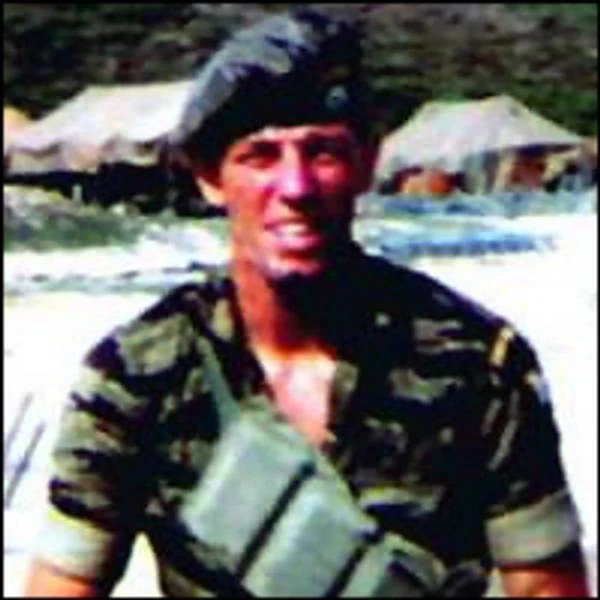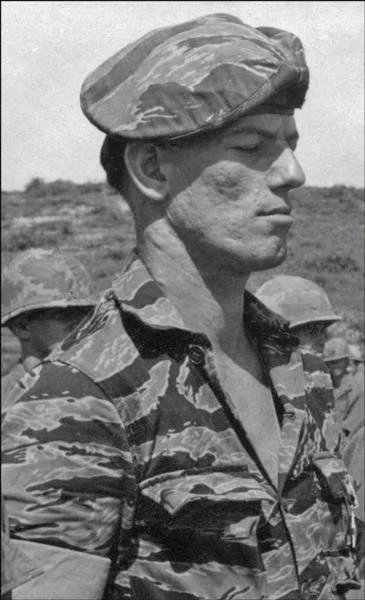Medal of Honor: John G. Gertsch – Vietnam War, July 19, 1969
Between July 15th and 19th, his platoon was tasked with a dangerous mission—assaulting and securing a heavily fortified North Vietnamese position tucked deep into the jungled ridges of the A Shau Valley.
July 19, 2025

 John G. Gertsch
John G. Gertsch
Rank: Staff Sergeant
Conflict: Vietnam War
Unit: Company E, 1st Battalion, 327th Infantry, 101st Airborne Division
Date of Action: July 15–19, 1969
Location: A Shau Valley, Republic of Vietnam
Summary of Action:
In the remote and perilous A Shau Valley—one of the most fiercely contested battlegrounds of the Vietnam War—Staff Sergeant John G. Gertsch proved himself to be the embodiment of airborne grit and leadership. Born in Jersey City, New Jersey, and raised with a sense of duty that later called him to enlist in Buffalo, New York, Gertsch was known among his fellow Screaming Eagles of the 101st Airborne Division for his calm under fire, tactical sharpness, and deep commitment to the lives of the men around him. By the summer of 1969, he had become a seasoned and respected platoon sergeant in Company E, 1st Battalion, 327th Infantry, a unit known as the “Above the Rest” battalion.
 Between July 15th and 19th, his platoon was tasked with a dangerous mission—assaulting and securing a heavily fortified North Vietnamese position tucked deep into the jungled ridges of the A Shau Valley. The enemy had dug in, concealed by dense vegetation, and prepared for a fight. As Gertsch's platoon advanced, they were hit with a ferocious wall of automatic weapons fire and rocket-propelled grenades. Amid the chaos, the platoon leader was struck down and lay fully exposed to the relentless fire. Without hesitation and under no orders, Gertsch sprinted through the storm of bullets, reached his fallen officer, and dragged him to safety. Bloodied and breathless, he rose and assumed control of the unit.
Between July 15th and 19th, his platoon was tasked with a dangerous mission—assaulting and securing a heavily fortified North Vietnamese position tucked deep into the jungled ridges of the A Shau Valley. The enemy had dug in, concealed by dense vegetation, and prepared for a fight. As Gertsch's platoon advanced, they were hit with a ferocious wall of automatic weapons fire and rocket-propelled grenades. Amid the chaos, the platoon leader was struck down and lay fully exposed to the relentless fire. Without hesitation and under no orders, Gertsch sprinted through the storm of bullets, reached his fallen officer, and dragged him to safety. Bloodied and breathless, he rose and assumed control of the unit.
Rallying his men, Gertsch led a daring and disciplined counterattack, turning the tide of the engagement and forcing the enemy to withdraw. But the battle was far from over.
 Later, while a small detachment from his platoon was conducting a forward reconnaissance sweep, they were ambushed by another concealed enemy force. Gertsch did not wait for reports or formulate from afar—he moved forward immediately. Charging through hostile fire alone, he advanced on the enemy's position, firing as he closed the distance. His bold and unexpected assault caused the enemy to fall back in disarray, allowing his unit to evacuate two severely wounded soldiers who otherwise would have been lost.
Later, while a small detachment from his platoon was conducting a forward reconnaissance sweep, they were ambushed by another concealed enemy force. Gertsch did not wait for reports or formulate from afar—he moved forward immediately. Charging through hostile fire alone, he advanced on the enemy's position, firing as he closed the distance. His bold and unexpected assault caused the enemy to fall back in disarray, allowing his unit to evacuate two severely wounded soldiers who otherwise would have been lost.
Still, the mission continued. Sometime later, his platoon was hit again—this time by a coordinated attack using automatic weapons, grenades, and RPGs. Gertsch was severely wounded in the opening barrage, but he refused medical evacuation. Bleeding and in pain, he moved among his men, shouting orders, directing suppressive fire, and keeping the platoon organized under immense pressure. His voice—firm and resolute—cut through the cacophony of battle, anchoring the morale of his soldiers in their darkest hour.
Then came the moment that would define his legacy forever. Amid the battle, Gertsch spotted a fellow medic kneeling over a wounded officer from a neighboring unit. Both were fully exposed, only seconds away from likely death. With no regard for his own wounds or safety, Gertsch moved from cover and ran toward them. He positioned himself directly between the two men and the enemy fire. He stood guard over them—returning fire, shielding them with his body—until the officer could be moved to safety.
It was in that final act of selfless protection that Staff Sergeant John G. Gertsch was mortally wounded.
He died not only as a soldier but as a guardian of his brothers. His final acts on the battlefield were a culmination of days of bravery, sacrifice, and refusal to abandon his men. He could have retreated. He could have sought medical care. Instead, he chose to stay, to fight, and to protect—over and over again—until he had nothing left to give but his life.
His gallantry delayed enemy advances, saved the lives of multiple comrades, and inspired all who witnessed his courage. His name became legend within the 101st Airborne Division, and his sacrifice stands as a timeless example of valor, devotion, and the warrior’s code carried out to its ultimate conclusion.
Medal of Honor Citation:
S/Sgt. Gertsch distinguished himself while serving as a platoon sergeant and platoon leader during combat operations in the A Shau Valley. During the initial phase of an operation to seize a strongly defended enemy position, S/Sgt. Gertsch’s platoon leader was seriously wounded and lay exposed to intense enemy fire. Forsaking his own safety, without hesitation S/Sgt. Gertsch rushed to aid his fallen leader and dragged him to a sheltered position. He then assumed command of the heavily engaged platoon and led his men in a fierce counterattack that forced the enemy to withdraw.
Later, a small element of S/Sgt. Gertsch’s unit was reconnoitering when attacked again by the enemy. S/Sgt. Gertsch moved forward to his besieged element and immediately charged, firing as he advanced. His determined assault forced the enemy troops to withdraw in confusion and made possible the recovery of 2 wounded men who had been exposed to heavy enemy fire. Sometime later his platoon came under attack by an enemy force employing automatic weapons, grenade, and rocket fire. S/Sgt. Gertsch was severely wounded during the onslaught but continued to command his platoon despite his painful wound.
While moving under fire and encouraging his men he sighted an aidman treating a wounded officer from an adjacent unit. Realizing that both men were in imminent danger of being killed, he rushed forward and positioned himself between them and the enemy nearby. While the wounded officer was being moved to safety S/Sgt. Gertsch was mortally wounded by enemy fire. Without S/Sgt. Gertsch’s courage, ability to inspire others, and profound concern for the welfare of his men, the loss of life among his fellow soldiers would have been significantly greater. His conspicuous gallantry, extraordinary heroism, and intrepidity at the cost of his life, above and beyond the call of duty, are in the highest traditions of the U.S. Army and reflect great credit on him and the Armed Forces of his country.
